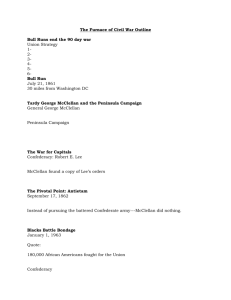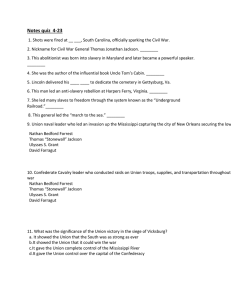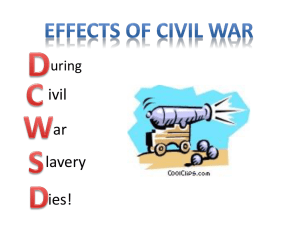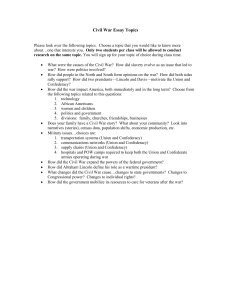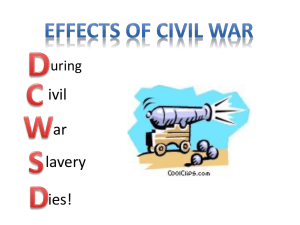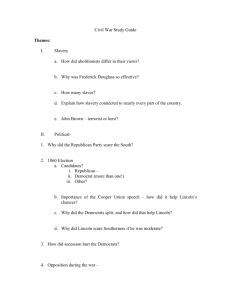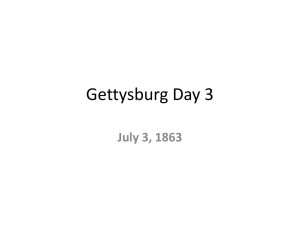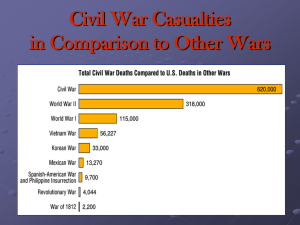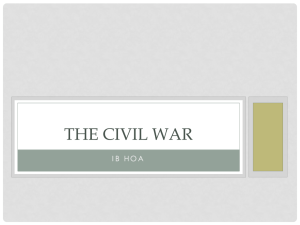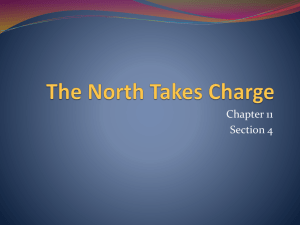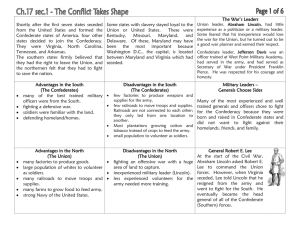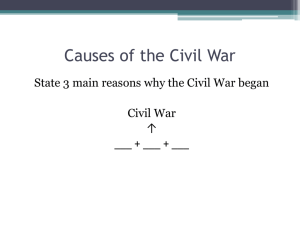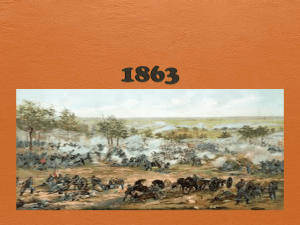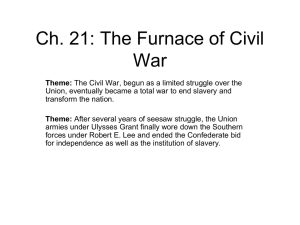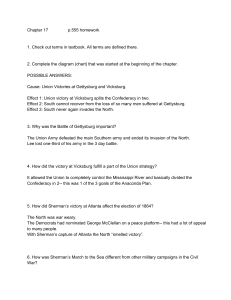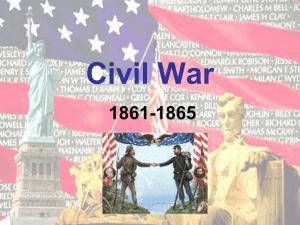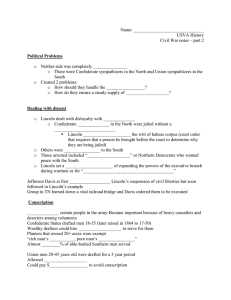What factors and events led to the Union victory in the Civil War?
advertisement
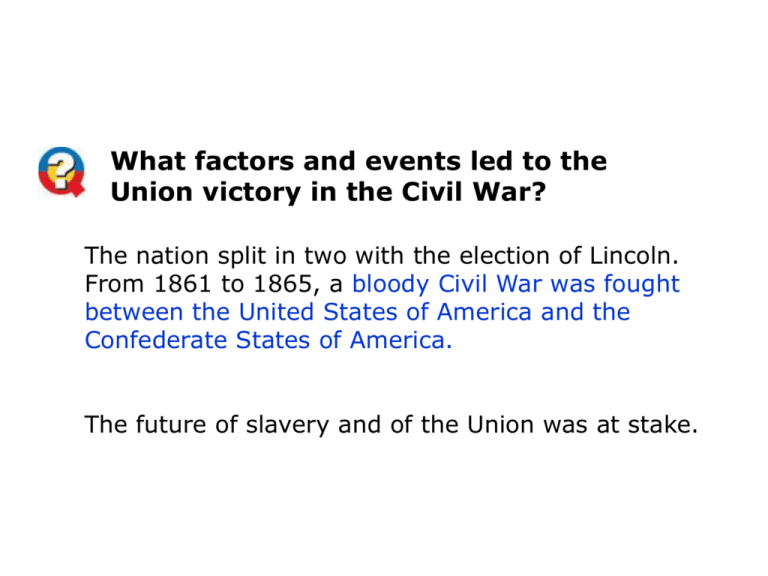
What factors and events led to the Union victory in the Civil War? The nation split in two with the election of Lincoln. From 1861 to 1865, a bloody Civil War was fought between the United States of America and the Confederate States of America. The future of slavery and of the Union was at stake. The War Begins 3.3 Goal Advantages The Union The Confederacy Preserve the union Gain independence • Growing population • More industry • Better railroads • Strong navy Disadvantages • Small standing army • Troops were not very committed • Lacked the best military leaders • Had the nation’s best military leaders • Troops committed to the fight • Less factories for making war supplies • Few vital ports • Smaller population The South had the advantage of simply needing to hold out longer than the Union. The North had to conquer the Confederacy. The North pursued the Anaconda Plan to cut off supplies to southern ports. Confederate forces were led by the experienced general Robert E. Lee. •During the first two years of the war, neither side gained a clear victory or captured the other’s capital city. Early Civil War battles Bull Run (July 1861) Shiloh (April 1862) Antietam (Sept. 1862) Fredericksburg (Dec. 1862) Lincoln’s primary goal was to preserve the Union. However, in 1863 he issued the Emancipation Proclamation, freeing all slaves in rebel states. The Union began to recruit African American soldiers. Some 180,000 black men served. The Civil War changed civilian life in the North in many ways. • Mines and factories increased production to supply military needs. • The government raised taxes and tariffs. • When Congress instituted a draft, riots broke out in Northern cities. • Lincoln suspended the right of habeas corpus. The tide of the war began to shift in the Union’s favor in 1863. •After victory at Vicksburg, Union General Ulysses S. Grant achieved the Union goal of splitting the Confederacy in two. Next, the Union faced a Confederate invasion at the Battle of Gettysburg and defeated Lee’s troops there. The battle destroyed one third of Lee’s forces. Grant Lee •President Lincoln went to Gettysburg a few months later to dedicate a battle cemetery. His speech that day, the Gettysburg Address, reaffirmed the ideas for which the Union fought. Map of the Civil War Most Civil War battles were fought on Confederate soil. •Union General William T. Sherman led troops on a march through Georgia and South Carolina. Pursuing a strategy of total war, Sherman’s troops targeted all the resources needed to support the rebel army. In spring of 1865, the Confederacy was exhausted. General Lee surrendered to General Grant on April 9. The Civil War had many lasting impacts. The South was in shambles. Freedom promised new opportunities for African Americans. Although debates about states’ rights would continue, never again would states attempt to secede.

